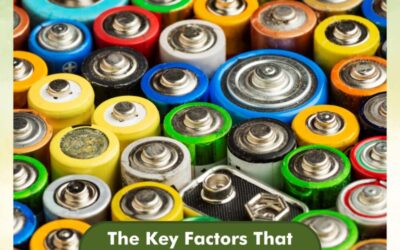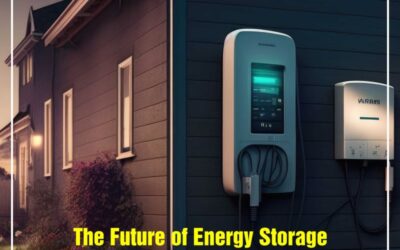
Explore the global shift towards sodium-ion batteries as a viable alternative to lithium-ion batteries and how Indi Energy’s sodium-ion batteries are addressing the pressing energy crisis while paving the way for a sustainable future.
The world is actively seeking alternatives to lithium-ion batteries and lead-acid batteries, and sodium-ion batteries are poised to fill that gap. The pressing global energy crisis, driven by geopolitical tensions, inflation, and the depletion of non-renewable energy sources, necessitates a change. The innovative efforts of the four scientists and engineers from IIT Roorkee who developed India’s first indigenous sodium-ion batteries have given birth to Indi Energy. Housed at IIT Roorkee’s TIDES Business Incubator, we at Indi Energy aim to establish ourselves as a leader in the sustainable energy storage sector. With the establishment of our pilot production plant, we are taking definitive steps toward enabling global energy independence.
Alongside Indi Energy, several other prominent players, such as Faradion, Natron Energy, CATL, and HiNa, are involved in the sodium-ion battery market. This collective effort signifies that sodium-ion battery technology is on track to surpass lithium-ion batteries in the near future. In this blog post, we will explore the bright future of sodium-ion battery technology, focusing on Indi Energy, an energy storage startup, and our significant contributions in this field.

Why is sodium better than lithium?
An Abundant and Accessible Element: Sodium, one of the most abundant elements on Earth, presents a vast opportunity for energy storage. Its widespread availability makes sodium-ion battery technology more affordable compared to lithium-ion batteries, which are limited to specific locations. The abundance of sodium translates into lower extraction and purification costs, making it an economically attractive option.
How is Indi Energy addressing the global energy crisis?
Indi Energy has emerged as a key player in advancing sodium-ion battery technology. Our groundbreaking approach involves using a sodium cathode, a proprietary sodium electrolyte, and an anode BioBlack™ (hard carbon produced from bio/agricultural waste). By utilizing BioBlack™ (one of the world’s highest-performing hard carbons derived from bio/agricultural waste) as the anode and abundant sodium as the cathode, these batteries offer exceptional electrochemical performance, stability, and safety.
Stellar Performance :
Indi Energy’s sodium ion batteries offer a higher energy density than lead-acid batteries, which means that they can store more energy in a smaller space. In addition, Indi Energy’s sodium-ion batteries have a longer cycle life and can be charged and discharged more times without losing capacity. Meanwhile, our sodium-ion batteries have a similar energy density to lithium-ion batteries and can provide comparable performance at lower costs.
Exceptional Safety :
Unlike conventional lead-acid and lithium-ion batteries, Indi Energy’s sodium ion batteries do not contain scarce, hazardous materials such as lead, lithium, cobalt, and nickel. Instead, our sodium-ion batteries use non-toxic and abundant materials, such as agricultural waste or biowaste, and do not experience thermal runaway. This means that our revolutionary sodium-ion batteries are not prone to overheating, fire, or explosions.
Sustainable Technology :
Sourcing sodium is environmentally friendly. Indi Energy’s customizable, rechargeable, and recyclable sodium ion batteries utilize Hard Carbon, a.k.a. BioBlack™, made out of agricultural waste or biowaste, as an anode, a sodium-ion cathode, and a proprietary sodium-ion electrolyte. On the other hand, lead-acid batteries and lithium-ion batteries require rare, toxic, and expensive materials that can only be obtained through hazardous mining and extraction processes.
From sustainability, non-flammability, easy recyclability, and performance comparable to lithium-ion batteries, sodium-ion batteries from Indi Energy have a wide range of applications, including electric vehicles, solar and wind grid storage, stationary energy storage, data center backups, UPS/inverter batteries, and small applications like toys and emergency lights.
The future of sodium-ion battery technology is very promising and has the potential to revolutionize the energy storage landscape. Indi Energy’s pioneering work, along with that of other prominent players in the market, signals a shift toward sodium-ion batteries as a viable alternative to lithium-ion batteries. These batteries hold the key to a future where humanity thrives in harmony with the power of nature itself. To learn more about Indi Energy and its sodium-ion battery technology, get in touch with us today. Together, we can shape a sustainable future powered by sodium-ion batteries.






